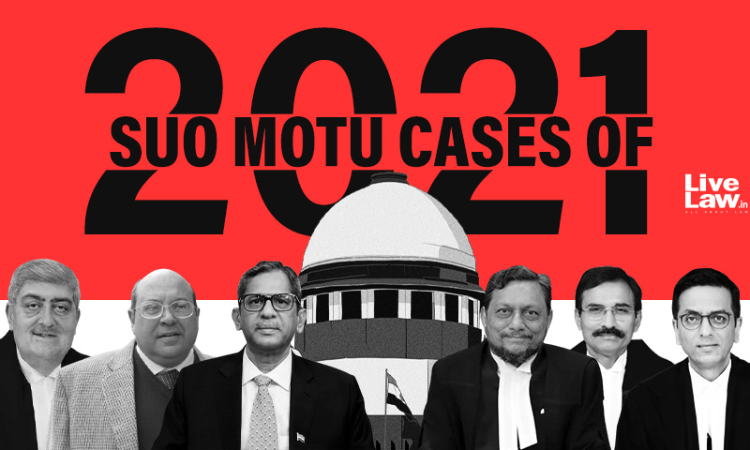'Not A Mute Spectator' : Suo Motu Cases Taken By Supreme Court In 2021
Srishti Ojha
27 Dec 2021 12:01 PM IST

Next Story
27 Dec 2021 12:01 PM IST
'Suo motu' is a Latin term which means 'on its own motion'. When the Court takes suo moto cognisance of an issue, it institutes a case on its own accord by taking cognisance of a public issue. At times, the Court's suo motu actions will be based on letter petition, media reports etc. When the COVID-19 pandemic and plight of those in distress had evoked a feeling of helplessness and...
